PVG's flexo ink lab is inaugurated
The Printing Engineering Department at PVG’s College of Engineering and Technology, Pune (PVG’s COET) set up an ink lab in the printing engineering department. This project was in partnership with Siegwerk India in association with Parakh Agro.
03 Apr 2017 | By Priya Raju
Commenting on the project during his inaugural address, Ashish Pradhan, CEO, Siegwerk India said “This project is a very significant development for the college and the industry as a whole, as we are attempting to create knowledge sharing through best resources from the industry. The collaboration between an ink manufacturer, a printer and the academia to bring in cutting edge technology to the Indian printing industry is unique. Globally, the flexographic printing ink market is projected to hit USD 11 Billion by 2024 (Global Market Insights Inc) – Our partnership today, therefore, is extremely significant as it is paving the way for the Indian printing ink industry to be a part of the global growth story.”
The lab is the initiative of the college’s 32-year old printing engineering department and the first lab that Siegwerk, a 180-year-old leading manufacturer of printing inks, has helped set up in an Indian college. The Printing Engineering Department is equipped with the Kyowa Surface Tensiometer DY300 which will help in understanding the interaction between substrate and ink. The role of Siegwerk India to this project will be the contribution of the equipment, industry best practices and knowledge transfer by its experts through sessions for the students. The Ink lab will help facilitate and benefit students to get a hands-on experience of dealing with ink technology.
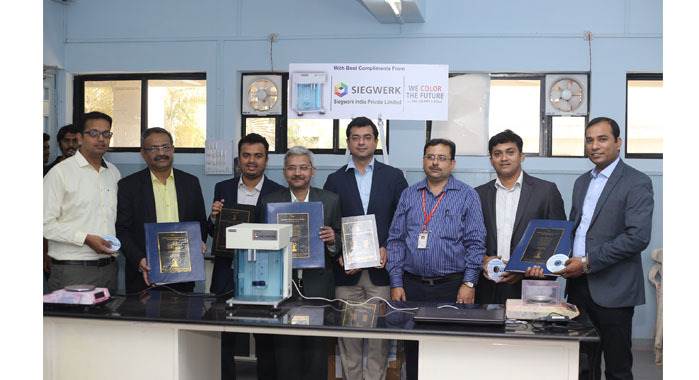
(l-r): Rajkumar Bora, Vinay Nalawade, director, Parakh Flexipacks, Harshal Parakh, director, Parakh Agro, R G Kaduskar, director, PVG’s College of Engineering and Technology, Pune, Ashish Pradhan, CEO, Siegwerk India, Akshay Joshi, professor, Printing Engineering Department, PVG’s College of Engineering and Technology, Pune, Umesh Bhende, Shirish Shahu at the launch of India’s first comprehensive ink lab at PVG’s College of Engineering and Technology, Pune
The constant challenge of flexographic printing is not only to match rotogravure in terms of graphic quality and resolution but also to meet commercial expectations of printers and brand owners. This printing lab will help Siegwerk, Parakh Agro and the institute to jointly work on this aspect and evolve a scientific and practical solution to this conundrum.
PVG’s COET is the driving force behind graduating 60 print specialists every year. So far, the college has produced more than 1600 print specialists over the last 27 years.
This initiative will set to be a two-pronged enabler that will look at training students on live projects, understand substrate-ink interaction for problem solving and reach out to the current existing workforce from the industry to enhance and improve their existing skills by inviting them to use the ink lab.
Dr Akshay Joshi, Professor, Printing Engineering Department, PVG’s College of Engineering and Technology, Pune, India “We are extremely glad to be able to partner with Siegwerk and upgrade our existing infrastructure as well as bring in relevant additions to our existing syllabus. With this development we are confident of equipping our students with the latest ongoing in the industry and hence prepare them as ready-made resources for on ground requirements.”
Research Project Highlight
Vinay Nalawade and Harshal Parakh highlighted the future scope of flexography industry in India and the importance of association with the Institute for carrying out research projects for the betterment of academia and future engineers. Vinay Nalawade spoke about the outcome of the project being carried out by Dr Akshay Joshi and his team of seven students along with Parakh Flexipacks and Siegwerk. This should reduce the overall manufacturing cost of flexo printing on PE laminate. Parakh Flexipacks supported the project with pre-press, CI flexo press and converting facilities. Siegwerk was instrumental in donating Kyowa Surface Tensiometer DY300 to the Institute that proved to be pivotal for understanding ink-substrate interaction.
The surface tensiometer was demonstrated to the guests in the ink lab and the project report was handed over to Siegwerk and Parakh Flexipacks.
Akshay Joshi, research coordinator, stated that such live projects with industry shall help to upgrade the syllabus and existing infrastructure in the department; thereby create a better trained product for the industry. The working of Contact Angle Meter, Mottle measurement, Image Analyzer and Missing Dots analyzer was demonstrated to the guests during the visit to the gravure and flexo lab.
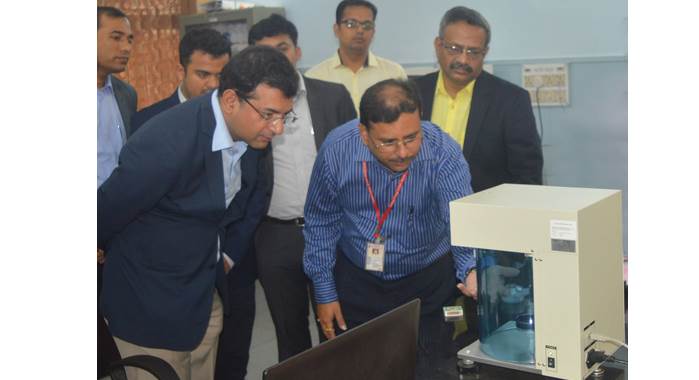


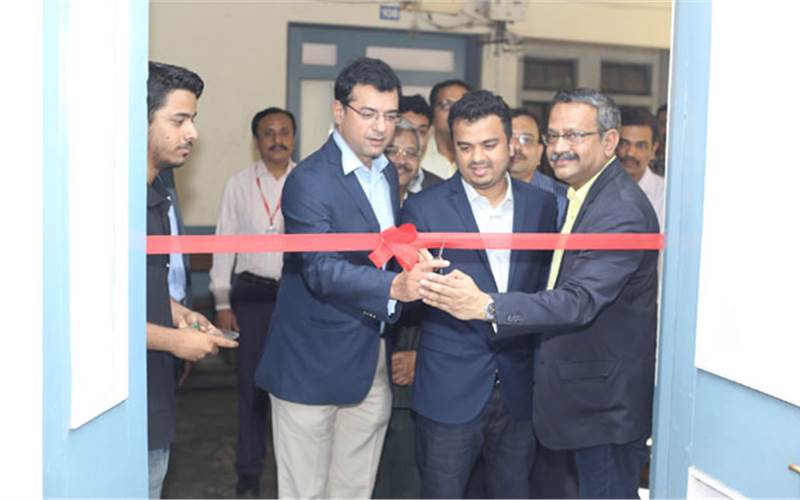
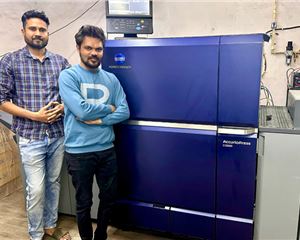
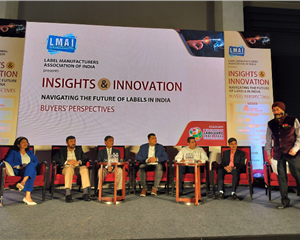
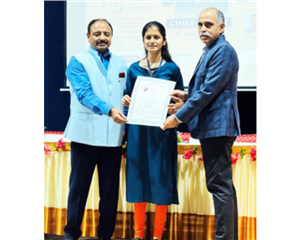
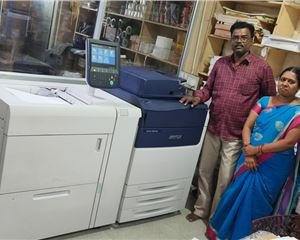






 See All
See All